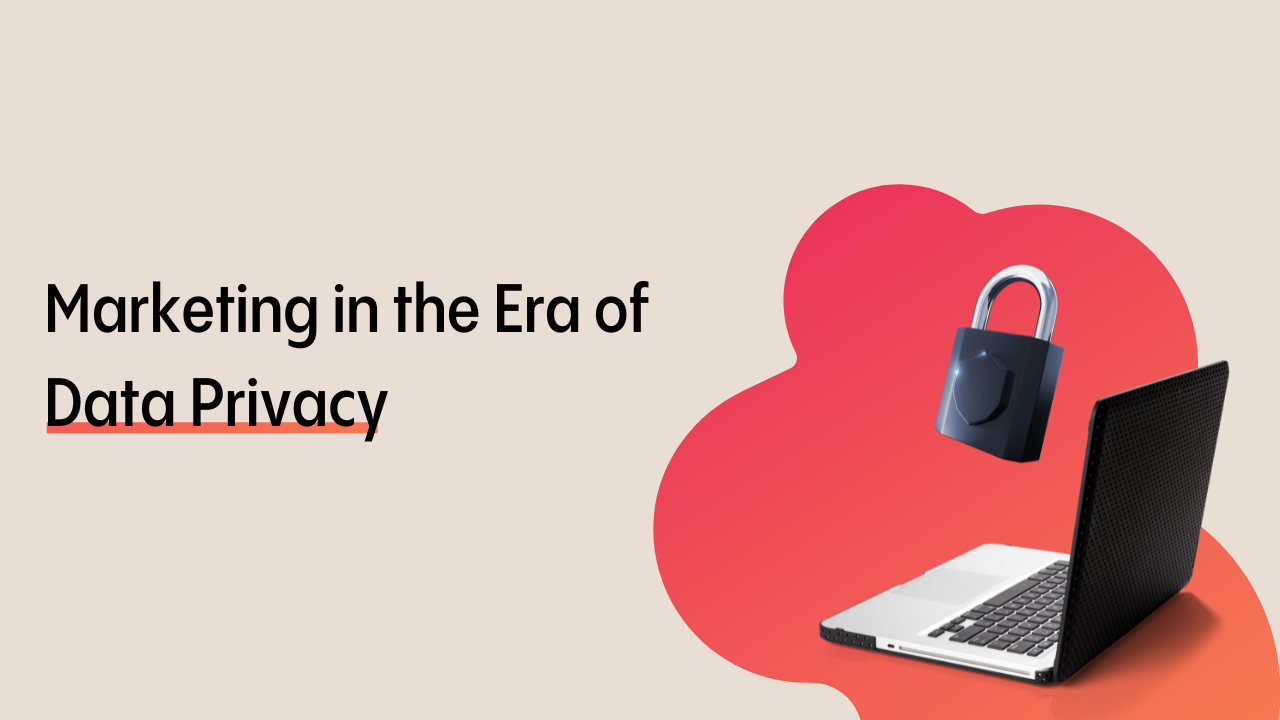What are customer data privacy laws in digital marketing? How is customer data used? These are just two of the many questions consumers are dying to get answers to amid the rise of the digital information era. Massive amounts of data are being collected and stored across various organizations, creating a huge potential for loss and misuse. As a business, how can you promise your customers that their personal data is safe?
It's becoming more pressing for your company to remain aware of the obligations to protect the privacy and security of your customers' data.
Continue reading to find out everything you need to know about data privacy in marketing and tips for digital marketers to instill confidence in your consumers.
What is data privacy?
Data privacy is a concept that describes the way third-party organizations collect and use the information that customers provide. This includes their financial and demographic details, the products they buy and their interests.
Digital marketing heavily depends on consumer data to create personalized customer experiences and deliver effective marketing campaigns, so companies must take the necessary steps to protect their customers' information.
Unfortunately, despite the positive impacts of personal data disclosure, the increasing number of scandals involving data misuse and unauthorized access has prompted consumers to become more concerned about their privacy.
Why is data privacy important?
Data privacy should be an absolute priority for businesses worldwide. After all, people want to be assured that their information will be handled carefully. Would you feel comfortable if you didn't know where your personal data was being stored and you were at risk of a breach?
Unfortunately, many companies do not have the necessary security measures to prevent unauthorized access and misuse of their customers' data. To prevent these from happening to your company, you ought to adopt effective data management practices.
Why should brands care about data privacy?
The lack of transparency regarding how much data is collected and stored by commercial and government organizations has led to various data breaches. The number of data breaches has increased significantly over the past decade, and they have been made even more prominent by the rise of social media platforms. As more and more information gets put online, there is an increased number of hackers and companies that work to undermine your personal privacy. This issue has caused many consumers to become frustrated with the perceived lack of control over their personal information.
Adhering to proper data privacy and compliance allows you to become one step closer to improving your market reputation, avoiding potential legal risks, and increasing your chances of brand success. It impacts how customers perceive the brand, how employees view your workplace and provides an opportunity for brands to stand out from their competition by having a strong data privacy strategy.
Data privacy tips for digital marketers
Digital marketers must adapt to the changes brought about by the new laws and user expectations. This means implementing new strategies and methods to improve how to gather and use data. Here are some of the best practices you can apply:
Transparency
Being transparent about how your company collects and uses your data is crucial and even legally required in some places. You need to be as transparent as possible about how your company plans to use consumer data in order to keep your customers.
If your site uses cookies, ask for permission to do so. Try to avoid blocking content if users do not accept cookies because it sends a message that obtaining their personal data matters more than consumers coming to your site for a product or service. If they can’t view content on your site without providing personal information, they may be more inclined to take their business to a competitor.
Offer something in return
There are ways to obtain consumers' personal information that are fun and exciting for them as well. Try creating an engaging campaign that asks users for their personal information in exchange for discounts or promotion codes. Another option is gating your content. Provide high quality, unique and valuable content to a consumer if they share their email address or basic contact information to you. Make sure they can unsubscribe or opt-out at any time.
Control data visibility
An access control model is a vital part of marketing and data privacy. While it is crucial to protect the privacy of your customers' data, prioritize who can access it. This means that only those who need it should be able to access it.
People with access to your customer's data should be trained to handle it. A data breach or leak can have serious consequences, and the more people have access to it, the greater the likelihood of this happening. To minimize the risk of unauthorized access, you should regularly keep your customers' data encrypted.
You should try to do everything in your power to respect and protect the data you collect. When collecting and using personal data, you must be transparent about how and why you do it. Continuously demonstrating how you are using consumer’s data with their best interests in mind will prompt them to share more information with you, allowing you to deliver a better customer experience.
